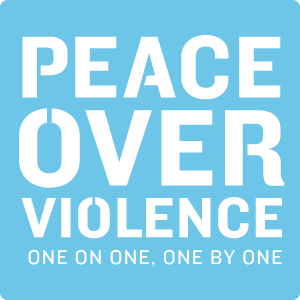Types of Abuse
Physical Abuse
In a relationship is the most overt form of battering and the most easily identified. Physical abuse can include hitting, biting, slapping, battering, shoving, punching, pulling hair, burning, cutting, pinching, etc. (any type of violent behavior in icted on the victim). Physical abuse also includes denying someone medical treatment and forcing drug/alcohol use on someone. Unfortunately, without intervention, some battering relationships become lethal. As the level of abuse escalates, weapons such as baseball bats, broom handles, knives and guns may be used by abusers against their partners.
Emotional and Verbal Abuse
Can seriously affect one’s self-esteem. It minimizes the effect that words have and how we see ourselves. Verbal and emotional abuse can be as subtle or as overt as the batterer wants it to be. Since there are no physical signs of trauma, many people are slow to recognize the lasting effects that verbal or emotional abuse has on survivors. Verbal and emotional abuse can be extremely hurtful and it can involve invalidating or de ating the survivor’s sense of self-worth and/or self-esteem. Emotional abuse often takes the form of constant criticism, name-calling, injuring the victim’s relationship with their children, or interfering with the survivor’s abilities.
Psychological Abuse
Involves the abuser invoking fear through intimidation; threatening to physically hurt themselves, the victim, children, the victim’s family or friends, or the pets; destruction of property; isolating the victim from loved ones; and prohibiting the victim from going to school or work.
There are also non-verbal threats which may be as terrifying as verbal threats, such as looks, actions, or facial expressions. These threats can be a powerful form of psychological abuse and should be taken very seriously, especially if the survivor knows that the abuser has the capacity to carry out the threat.
Economic Abuse
Is a batterer’s need for power and control in the relationship which is often evident in their need to control nances and nancial decisions. Economic abuse may mean that the abuser requires their partner to ask permission to spend money, and detail what it will be used for; the abuse might not allow the survivor any access to money or nancial decisions; or the abuser might even take the paycheck that the survivor earns and not allow them to access the funds. Economic abuse may also take place when the abuser makes or tries to make the survivor financially reliant or prohibit the survivor from going to school or work.
Stalking
Can include following the survivor, spying, watching, harassing, showing up at the survivor’s home or work, sending gifts, collecting information, making phone calls or leaving written messages. These acts individually are typically legal, but any of these behaviors done continuously results in a stalking crime.
Cyberstalking
Refers to online action, through social media, or repeated emailing that in icts substantial emotional distress on the recipient.
Combinations of Abuse
Is when abusers incorporate more than one type of violence into the abusive relationship. Typically, the early stage of an abusive relationship starts with name-calling or epithets. As the need for more control of the relationship grows, the batterer moves from verbal and emotional abuse to shoving, slapping and punching. Combinations of various types of abuse are very effective in demeaning, humiliating and controlling another person. Combinations of abuse affect the mind, body and spirit leaving the survivor with low self-esteem. Survivors often feel as they have no options. Generally the violence becomes more severe and frequent.
